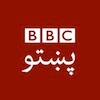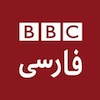First Wednesday: Is talking to the Taliban a solution?
On 18 June Nato handed over security for the whole of Afghanistan to the Afghan government. At the same time in Doha, Qatar, the Taliban opened an office, establishing a political face to the movement.
The newly announced peace negotiations with the Taliban have been met by division. Attacks on security targets have not abated, a suicide bombing near the presidential palace killed seven on 25 June. The Karzai government pulled out of the first arranged meeting stating: “As long as the peace process is not Afghan-led, the High Peace Council will not participate in the talks in Qatar.”
Paddy O’Connell of BBC Radio 4′s Broadcasting House will be hosting a panel of experts to take an in-depth look at what negotiations with the Taliban mean for Afghanistan. If talks are to go ahead how should they be conducted?
The panel:
Frank Ledwidge is a former Naval reserve military intelligence officer, he served on front-line operations in the Balkan wars and in Iraq. In civilian life he practised as a criminal barrister for eight years before specialising in international development and human rights law. He has since worked as a civilian advisor all over the world, including in Afghanistan and Libya. He is author of Losing Small Wars British Military Failure in Iraq and Afghanistan and Investment in Blood The True Cost of Britain’s Afghan War.
Lucy Morgan Edwards is author of The Afghan Solution and a researcher at the CAIS, Exeter University. She first worked in Afghanistan during the Taliban period. After 9/11 she experienced the ‘transition’ as an election monitor, a researcher on transitional justice for the ICG, correspondent for the Economist, Political Advisor to the EU Ambassador and ‘Country Expert’ to the Chief Observer of the 2005 Parliamentary elections. She is also co-author of A Better Path to Peace – submitted earlier this year to the Select Committee on Defence. The paper argues that talking to the hardliners of the Taliban will not achieve lasting peace in Afghanistan.
John D McHugh is a multimedia photojournalist and filmmaker. Since 2006 he has worked extensively in Afghanistan, covering the war against the Taliban. He has embedded with US, Canadian, British, Danish and Afghan troops. His work has been published in Newsweek, Time magazine, The New York Times, The Guardian and many others. His latest film Afghanistan: Drawdown was shot in Kandahar in April/ May 2013 and has recently aired on Al Jazeera English.
Dawood Azami is an award winning broadcast journalist working for the BBC World Service in London. From 2010-2011 he was BBC World Service Bureau Chief and Editor in Kabul, Afghanistan. He is also a visiting scholar and taught at the University of Westminster, London, and the Ohio State University, USA.
In association with BBC Services for Afghanistan.




